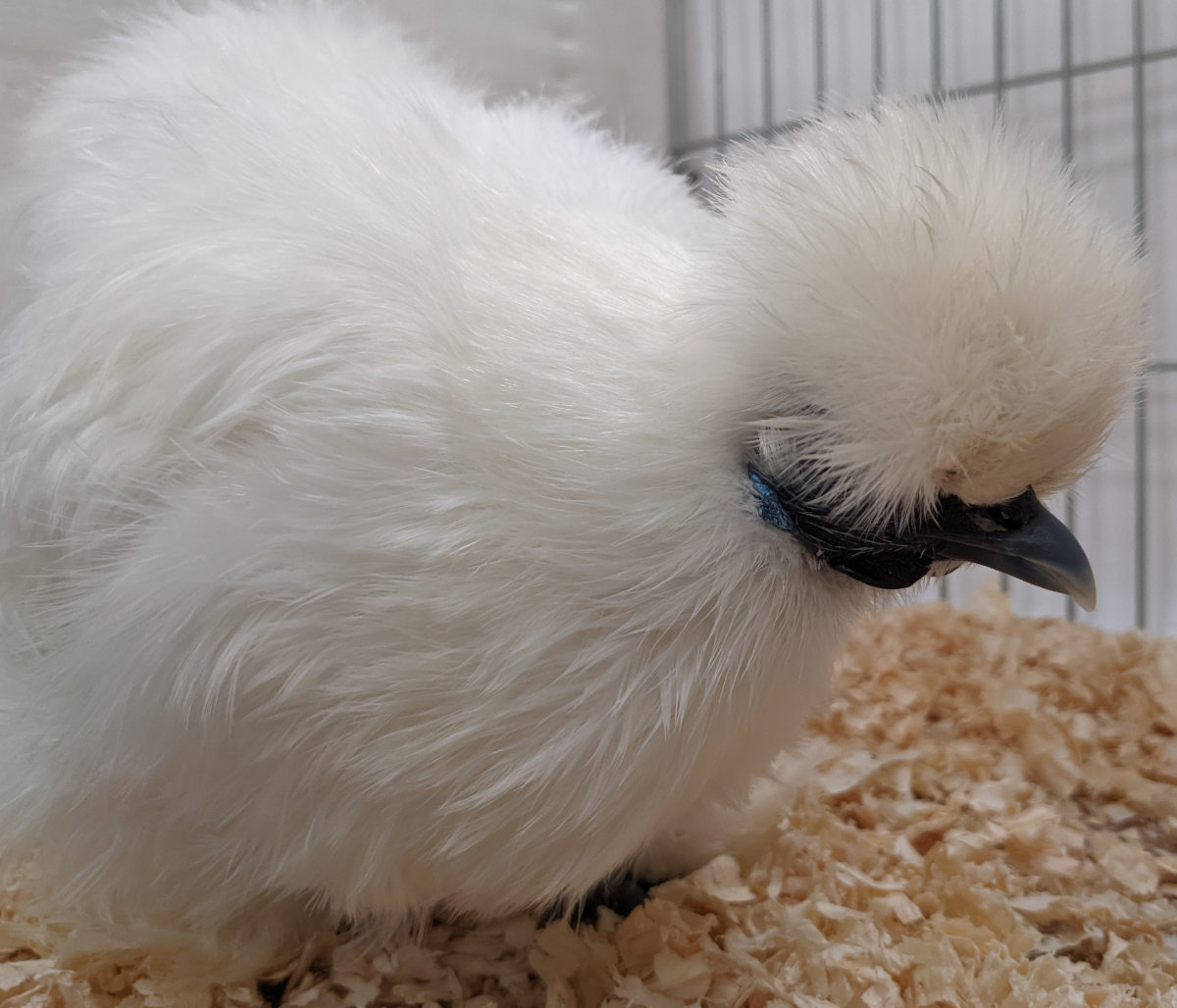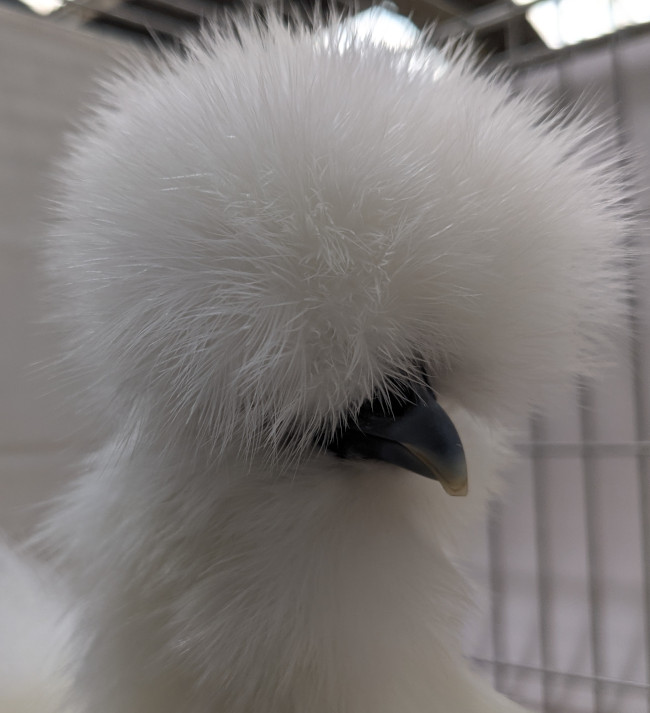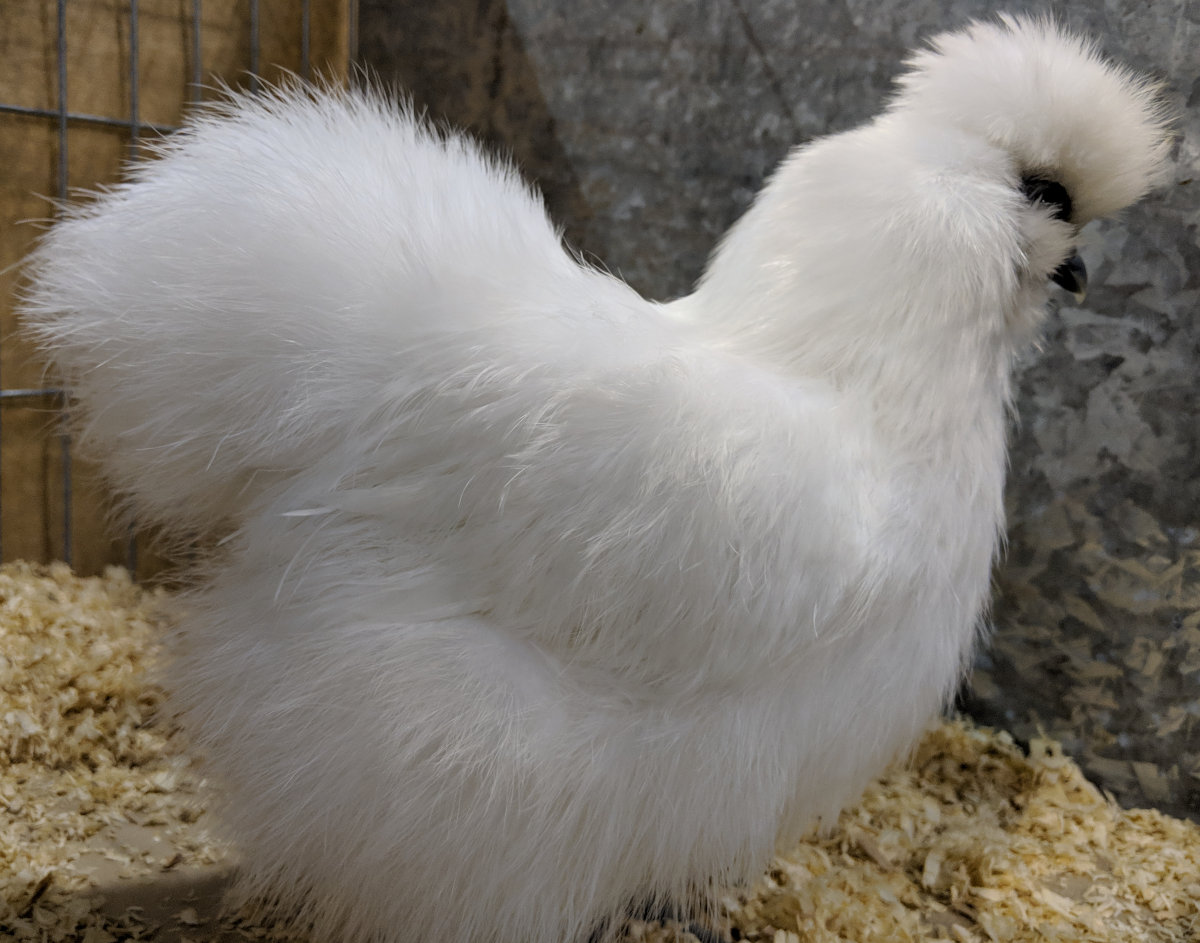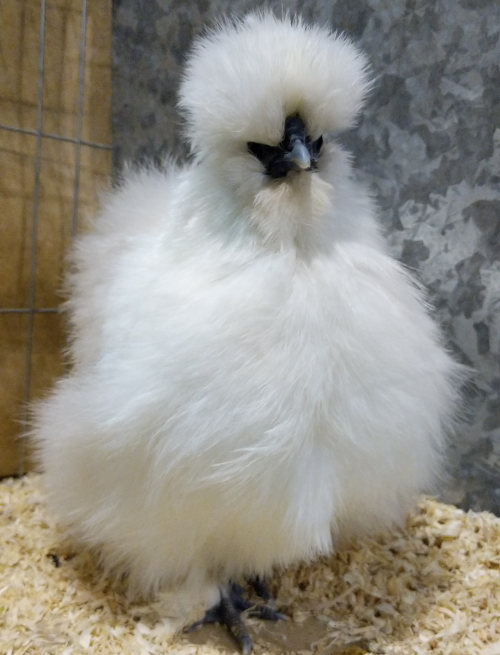Care of Silkie chickens

Silkie chickens are a popular breed of chicken for their gentle temperament and fluffy feathers. They are relatively easy to care for, but there are a few things you need to know to keep them healthy and happy.
Table of Contents
Silkies are a good beginner breed of chicken that is not a high maintenance breed although they do require a little extra care.
Silkie chickens easy to take care of?
Silkies are easy to look after and require much the same feed, water and care as other chickens.
I have raised many breeds over the last twenty years and have found the Silkies to be one of the most cold tolerant, there were no Silkies lost in my flock of last year, due to frostbite or the cold. It is however very important that they remain dry, wet Silkies will get cold and die very quickly.
Below: You can see how friendly they are around people.
Even through a few ups and downs in the weather reaching down to -20 Celsius or so. I had one young hen that got chilled and needed assistance to lay an egg. Two days in my house, third day back out and no further problems.
Here are some tips on how to care for Silkie chickens:
- Provide a coop that is dry, warm, and well-ventilated. Silkies are not as cold-hardy as some other breeds of chicken.
- The soft fluffy feathers have no waterproofing they need to be kept dry
- Give them plenty of space to roam. Silkies are active chickens and they need plenty of space to run around and explore. If you can, let them free-range in your yard. If you cannot free-range them, make sure their coop is large enough for them to spread out.
- Feed them a balanced diet. Silkies need a diet that is high in protein and calcium. You can feed them a commercial chicken feed that is specifically designed for Silkies, or you can make your own feed. If you make your own feed, be sure to include plenty of protein, calcium, and other essential nutrients.
- Keep their coop clean and dry. Silkies are susceptible to respiratory problems, so it is important to keep their coop clean and dry. You should clean the coop out at least once a week and remove any dirty bedding.
- Check them for parasites regularly. Silkies are also susceptible to parasites, such as lice and mites. You should check them for parasites regularly and treat them if necessary.
- Silkies love to dust bathe, so it is important to provide them with a dust bath. You can make a dust bath by filling a shallow container with sand dirt, diatomaceous earth and wood ash.
- Give them treats. Silkies love treats, so you can give them them as a way to show your love and appreciation. Some good treats for Silkies include fruits, vegetables, seeds and cooked grains.
- Be patient. Silkies are not quick growing or as fast-learning as some other breeds of chicken, so you need to be patient with them. They may take some time to get used to you and their new surroundings.
- Be gentle with them. Silkies are gentle chickens and they should be handled with care. Do not pick them up by their feathers or wings, and be careful not to hurt them.
With proper care, Silkie chickens can live for 8-10 years. They are a great breed of chicken for people who are looking for a gentle and docile pet.
Below: The crest and feathery feet can be a problem in wet and muddy conditions. When you are this gorgeous the hairdo is hard work.

I have found Silkies to be hardy irregular layers of excellent quality eggs. They rarely suffer from crop or egg binding issues and the majority of mine live long healthy lives.
Do Silkies need special care?
A little special care is required for Silkie chickens. The feathers wet easily and the birds can become chilled if this happens. The extra toes and feather feet can sometimes be an issue.
Consider a covered run for your Silkies to help keep them dry and mud free.
Silkies can be susceptible to lice and mites which is harder to see and treat because of the soft fluffy feathers.
My Silkies love to free range, just like my other chickens but because of their big crests they can not see predators easily.
Below: Keepers with Silkie hens think their character is worth the extra effort.

I had a group a 5 healthy Silkie hens that were in a trailer coop with no artificial light, or heat source during a cold snap in March still managed quite well at laying five eggs almost daily.
Raising Silkie chickens to maturity:
We all know Silkies are a wonderful hobby and a rewarding breed to raise.
I've been seriously breeding Silkies for about fifteen years now. Before that I was content to let hens hatch and raise their babies, I don't ever remember being anxious to see how they turn out. I enjoyed each stage of development.
I would caution you against judging birds too young, I sold quite a few chicks a while ago and these culls from my flock had reached maturity and bloomed into knock out birds. I was amazed and a little annoyed at myself. If I had just hung on a little longer. But I was certain at the time that they were just average birds.
Below: Silkie bantams need a little extra care.

Sure, I've supplemented my trusty broodies with a couple of incubators, because I can do it almost as well as the hens and do more of it. I still spend hours going over the birds and yes, I still label them as to quality, but I am not quick to judge a bird.
It may be a late bloomer or it may be the "ugly duckling" who matures into bird you're proud to show against your peers.
So when a breeder tells you no chicks or eggs, adults only, this is why. No one wants to sell a bird they've been trying to achieve and a buyer doesn't want a 4 month old lanky cockerel with the promise that one day he'll be a stunning bird. In the case of Silkies, it takes time and patience and without that, the only place you'll go is nowhere, fast.
Headbands and clothing for Silkies:
Putting hairbands in the crests of Silkies is a common way to keep the fluffy head feathers out of the eyes and allow the birds to see normally.
I avoid jumpers and covers unless you have a bad case of feather loss. The hens cant scratch underneath them and it can drive them mad. Have you ever had an itch you can't scratch.
Can you keep Silkies with other chickens?
Silkie bantams are quiet happy with other chickens and their friendly and docile nature means then generally get on well with other chickens. I have only ever had one bad tempered Silkie rooster in my years with the breed and even he was nothing like some that I have had to deal with.
Can Silkie chickens live indoors?
Keeping any chicken indoors is normally a bad idea. Chickens like the outdoors and should at the very least have access to their own coop and run and not share the human coop.
All chickens, Silkies included produce dander from their feathers with can irritate the lungs, make asthma worse and cause a disease known as Bird Fancier's lung or BFL. It is a type of hypersensitivity pneumonitis and is triggered by exposure to avian proteins present in the dry dust of the droppings and feathers of a variety of birds. The lungs become inflamed, with the formation of masses called granuloma.
I would keep your chickens outdoors.
